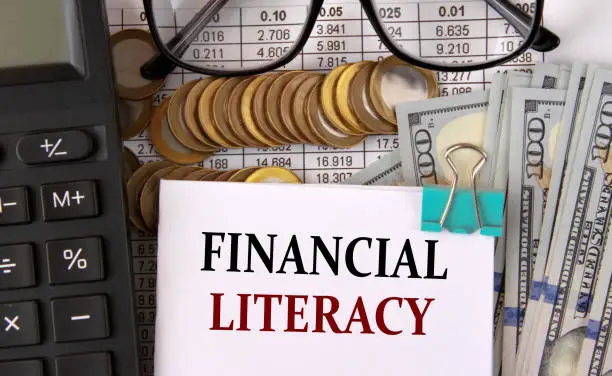Getting your financial act together by the time you hit 30 might sound cliché, but it’s one of the smartest moves you can make for your future. Whether you’re just starting out in your career, managing student loans, or dreaming of buying your first home, mastering these financial literacy skills will set you up for lasting success.
Let’s dive into the essential money skills you should absolutely nail before you turn 30.
Understanding the Basics of Financial Literacy
What Is Financial Literacy?
Financial literacy is more than just knowing how to balance your checkbook. It’s about understanding how money works, from budgeting and saving to investing and managing debt. Think of it as the toolbox that helps you make smart money decisions, avoid pitfalls, and grow your wealth.
Why Is Financial Literacy Crucial by Age 30?
By 30, many people face key financial milestones like buying a home, starting a family, or planning for retirement. Without a solid financial foundation, these goals can feel overwhelming or even unattainable. Learning financial literacy early empowers you to take control and avoid costly mistakes.
Budgeting Skills for Financial Control
Creating a Realistic Budget
Budgeting isn’t about starving yourself or cutting out all the fun. It’s about allocating your money smartly so you cover essentials, save, and still enjoy life. Start by tracking your income and expenses, then assign spending limits in categories like rent, food, entertainment, and savings.
Tracking Expenses Effectively
Use apps like Mint or YNAB (You Need A Budget) to monitor where your money goes. This simple habit can uncover spending leaks—like those daily $5 coffee runs—that add up surprisingly fast.
Managing Debt Smartly
Understanding Different Types of Debt
Not all debt is created equal. Credit card debt tends to be high-interest and should be paid off fast, while student loans or mortgages might have lower interest rates and longer terms. Knowing which debt to prioritize can save you thousands.
Strategies to Pay Off Debt Quickly
Try the debt snowball method—paying off the smallest debts first to build momentum—or the debt avalanche, which targets debts with the highest interest rate first. Either way, consistency is key.
Saving for Emergencies and Big Goals
Building an Emergency Fund
Unexpected expenses happen—a car breaks down, or you lose a job. An emergency fund covering 3-6 months of living expenses is your financial safety net. Aim to automate transfers to this fund regularly.
Saving for Short-Term vs Long-Term Goals
Saving for a vacation differs from saving for a down payment. Use separate accounts or sub-savings buckets to keep your goals clear and prevent dipping into funds unintentionally.
Investing Basics Everyone Should Master
Why Start Investing Early?
Thanks to compound interest, the earlier you invest, the more your money grows—kind of like planting a tree that grows bigger over time. Even small, regular investments in your 20s can turn into a hefty nest egg by retirement.
Understanding Stocks, Bonds, and Mutual Funds
Stocks mean partial ownership in a company and come with higher risk but potentially higher rewards. Bonds are loans to governments or companies and usually offer safer, steadier returns. Mutual funds pool money from many investors to buy a diversified mix of assets, spreading risk.
Understanding Credit Scores and Reports
What Impacts Your Credit Score?
Your payment history, credit utilization, length of credit history, and types of credit all play roles. Paying bills on time and keeping credit card balances low helps boost your score.
How to Improve and Maintain a Healthy Credit Score
Check your credit report annually for errors and dispute them. Avoid opening too many credit accounts at once, and keep older accounts open to build a longer credit history.
Retirement Planning Starts Now
The Importance of Early Retirement Planning
It’s never too early to think about retirement. The magic of compound interest means the money you save now will work harder for you in the future.
Common Retirement Accounts Explained
401(k)s, IRAs, and Roth IRAs each have unique benefits and tax advantages. If your employer offers a 401(k) match, max it out—it’s essentially free money.
Understanding Taxes and How to Minimize Them
Basics of Income Tax
Know your tax brackets and how your income is taxed. This helps with planning and avoiding surprises come tax season.
Tax Deductions and Credits You Should Know
Deductions lower your taxable income, while credits reduce your tax bill dollar-for-dollar. Common ones include student loan interest, education credits, and earned income tax credits.
The Power of Compound Interest
How Compound Interest Works
Compound interest is “interest on interest.” For example, $1,000 invested at 7% interest grows faster every year because your interest earns interest too.
Ways to Use Compound Interest to Your Advantage
Invest early and regularly, avoid withdrawing investments prematurely, and let your money grow over decades for maximum effect.
Insurance Essentials
Types of Insurance You Should Have by 30
Health insurance is a must. Consider renters or homeowners insurance, auto insurance, and disability insurance to protect your income.
Choosing the Right Insurance Plans
Shop around, compare deductibles, premiums, and coverage limits. The cheapest isn’t always the best if it leaves you exposed.
Smart Spending Habits
Needs vs Wants: Making Conscious Decisions
Before splurging, ask yourself: “Do I really need this, or do I just want it?” Prioritize needs and budget for occasional treats to avoid guilt.
Avoiding Lifestyle Inflation
When your income grows, it’s tempting to spend more. Resist the urge and increase savings instead—it’s a secret to building wealth.
Building Multiple Income Streams
Why Diversify Your Income?
Relying on a single paycheck is risky. Multiple income streams can provide financial stability and speed up wealth-building.
Ideas for Side Hustles and Passive Income
Think freelancing, rental properties, or creating digital products. Passive income means money that comes in with little active work after setup.
Financial Goal Setting
How to Set SMART Financial Goals
Make goals Specific, Measurable, Achievable, Relevant, and Time-bound to increase your chances of success.
Tracking and Adjusting Your Goals
Review goals regularly, celebrate milestones, and tweak your plan as life changes.
Avoiding Financial Scams and Frauds
Common Financial Scams to Watch Out For
Beware phishing emails, fake investment schemes, and “too good to be true” offers.
Protecting Your Financial Information
Use strong passwords, enable two-factor authentication, and monitor your accounts frequently.
Using Technology to Manage Finances
Best Apps for Budgeting and Investing
Apps like Personal Capital, Robinhood, and Acorns simplify money management and investing for beginners.
Benefits of Automated Financial Tools
Automation helps you save consistently, pay bills on time, and avoid late fees without the hassle.
When and How to Seek Financial Advice
Choosing the Right Financial Advisor
Look for certified professionals like CFPs (Certified Financial Planners) with fiduciary duty to act in your best interest.
What Questions to Ask Your Advisor
Discuss fees, investment strategies, and how their advice fits your goals.
Conclusion
Mastering financial literacy skills by 30 isn’t just a good idea—it’s a game changer for your financial future. By building strong habits around budgeting, saving, investing, and protecting your money, you’ll avoid common pitfalls and unlock opportunities to grow your wealth. Remember, financial freedom is a marathon, not a sprint, so start now and watch your efforts compound over time.
FAQs
1. What’s the first financial skill I should learn by 30?
Start with budgeting. Knowing where your money goes lays the foundation for everything else.
2. Is it really important to start investing before 30?
Absolutely! Early investing leverages compound interest, giving your money more time to grow.
3. How much should I save in my emergency fund?
Aim for 3 to 6 months of living expenses to cover unexpected events comfortably.
4. Can I improve my credit score quickly?
Improvement takes time, but paying bills on time and reducing debt can show results within months.
5. Should I hire a financial advisor in my 20s?
If you feel overwhelmed or want personalized guidance, a financial advisor can help you create a clear plan and avoid costly mistakes.





